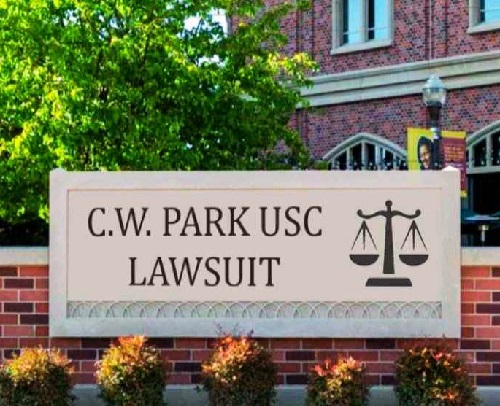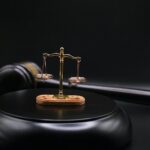
C.W. Park USC Lawsuit: A Battleground for Law and Ethics
The C.W. Park USC Lawsuit that is turning into a rather intricate drama of supposed misconduct and its legal consequences has become the focus of the legal and academic communities’ interest.
This is a brief article that talks about the prospects of importing insights from this case and why it is important and cites other potential effects in various contexts including but not limited to the legal successes of this case, the fact that the fallout seems to affect all academic institutions and so on.
Table of Contents
- 1 The C.W. Park USC lawsuit’s historical context
- 2 Important Developments of C.W. Park USC lawsuit
- 3 Legal Perspectives of C.W. Park USC Lawsuit
- 4 Consequences for Academic Communities of C.W. Park USC Lawsuit
- 5 More Comprehensive Legal and Ethical Aspects of C.W. Park USC Lawsuit
- 6 Prospective Courses of C.W. Park USC Lawsuit
- 7 In summary
The C.W. Park USC lawsuit’s historical context
The lawsuit is a result of claims of unethical behaviour and academic misconduct. A prominent member of the academic community C.W. Park USC Lawsuit was accused of participating in actions that violated USC’s ethical standards.
These accusations include money laundering, forging scientific findings, and exploiting his position for one’s benefit. The charges prompted USC to launch an internal inquiry, which was followed by legal proceedings that developed into comprehensive litigation.
Important Developments of C.W. Park USC lawsuit
First Accusations and Internal Probe
The dispute started when university employees who were acting as informants made accusations against C.W. Park USC Lawsuit. In response, the institution started an internal inquiry to evaluate the veracity of these allegations. USC disciplined Park after finding serious differences in research data and money records throughout the investigation.
Lawsuit Filing
USC stated the intermediate investigation results and filed a lawsuit against C.W. Park USC Lawsuit. The complaint also described how Park had caused damage to the university’s financial situation as well as reputation and sought a remedy for the same besides demanding that Park be held accountable for the alleged improprieties. Pleading the aftermaths of a scandal, Shelina K., Doe sued for fraud, breach of fiduciary responsibility, and violation of university policies and regulations.
Park’s Defence
C.W. Park USC Lawsuit also denied any wrongdoings while openly defending himself against the allegations that were laid against him. His representatives stated that there was not enough evidence following the accusations and that the internal investigation was wrong and flawed. They said that the charges were actually to brand Park as a scapegoat and had a motive of getting him dismissed from his academic position.
Pre-trial Motions and Discovery Phase
During the pre-trial stage the two parties made several motions. Park’s legal counsel sought to secure the motion to dismiss for quite several grounds like insufficient evidence and territorial incompetency. Meanwhile, the legal representative of USC wanted the release of more records and testimonies in support of their case. Discovery is typically the stage when more details of the case emerge, and there was a significant amount of arguments between the two parties at that phase.
Settlement Negotiations
During this legal battle, nevertheless, the parties in contention explored the feasibility of a solution as a way of avoiding a long court battle. That is why there were negotiations: it was necessary to save financial resources and avoid unwelcome changes to one’s image. This decision came after many negotiations failed, and the parties could not come to a consensus of setting the case for trial.
Legal Perspectives of C.W. Park USC Lawsuit
Many significant legal lessons may be learned from the C.W. Park USC litigation, especially about academic integrity and the obligations that academic institutions and their employees have under the law.
Accountability and Ethical Standards
The case emphasizes how crucial it is for academic institutions to uphold strong ethical standards. It emphasizes the need of strong systems to quickly identify and deal with misbehaviour. To promote an accountability culture, universities must make sure that their rules and processes are clear, strict, and open.
Legal Repercussions of Academic Misconduct
Academic misconduct may have serious legal repercussions for the institutions involved as well as the people who engage in it. The case serves as an example of how misbehaviour accusations may turn into protracted legal disputes that harm institutions’ finances and reputations. Institutions need to be ready to respond to these circumstances in a rigorously moral and legal manner.
Function of Whistleblowers
They are essential in exposing student wrongdoing in academic environments. Their acts may set off inquiries that result in legal responsibility. But whistleblower protection is also necessary to guarantee that they may expose unethical activity without worrying about reprisals.
Due Process and Fair Investigation
The Park case’s court processes underscore how crucial it is to carry out impartial and fair investigations. The accused must be given a fair chance to present their defence, and all allegations must be carefully investigated. Ensuring justice and preserving confidence in legal and educational institutions depend heavily on due process.
Consequences for Academic Communities of C.W. Park USC Lawsuit
The academic community will probably be greatly impacted by the resolution of the C.W. Park USC litigation. It may establish a standard for handling instances of a similar kind in the future, impacting legal tactics and university rules.
Enhancing Compliance and Oversight
To avoid such instances, universities should examine and improve their compliance and oversight procedures. This might include putting in place stricter checks and balances, improving transparency, and encouraging moral behaviour in society.
Legal Readiness
To manage future misbehavior-related litigation, academic institutions may strengthen their legal readiness. This entails creating thorough legal plans, educating employees about moral and legal obligations, and making certain they have access to knowledgeable legal representation.
Reputation Management
The case emphasizes how crucial it is for colleges to control their reputations. Institutions have to actively control their public image, particularly if misbehaviour is alleged. This calls for prompt action to resolve problems in a transparent manner as well as efficient communication techniques.
Encouraging Ethical Research procedures
Upholding the integrity of academic work requires the promotion of ethical research procedures. Universities should fund training initiatives that stress the value of research ethics and provide scientists with the instruments and materials they need to do their work to the highest standards.
More Comprehensive Legal and Ethical Aspects of C.W. Park USC Lawsuit
Beyond the direct parties involved, there are further legal and moral issues raised by the C.W. Park USC litigation.
Effect on Academic Partnerships
Particularly about trust and verification, the case might have consequences as to how academic collaborations are carried out. The legal consequences of such collaborations may cause institutions to increase the vigilance of any such partnerships and insist on the participants’ adherence to rigorous ethical requirements.
Research Grants and Funding
In turn, it can be assumed that grant agencies and other funding organizations will pay increased attention to the specific research proposals and/or the applicants themselves from an ethical perspective. This leads the funding bodies to exercise more control in the use of the research money as the case points out the importance of responsibility.
Public View of Academics
These notoriety cases have the potency to shift the public’s perception of the matter of academics positively. Misconduct incidents can be capable of ruining the academic institutions’ reputation, thus universities must prove that they are still against dishonest and immoral acts.
Legal Precedents
Whatever future cases involving academic malpractice may be prosecuted, will likely be plaintiffs to the findings made in this case. In similar cases, the decisions and the arguments of the current case can be referred to by other courts, thus affecting the legal precedents set in cases of academic dishonesty.
Prospective Courses of C.W. Park USC Lawsuit
In terms of the future, the C.W. Park USC case could spur many advances in the fields of law and academia.
Policy Reforms
Universities may implement extensive policy changes to address the problems brought to light by the case. This can include updating their internal procedures’ openness, enacting stronger supervision procedures, and updating their codes of conduct.
Educational programmes
To encourage a better comprehension of ethical research procedures among their staff and students, institutions may start up educational programmes. The use of online courses, seminars, and workshops might be used to emphasize the value of ethics in higher education.
Improved Legal Frameworks
To provide more precise standards and effective enforcement procedures, the legal frameworks regulating academic misbehaviour may be reinforced. To make sure that educational institutions and their employees are held to the highest ethical standards, legislators and regulatory agencies may propose new legislation or modify already-existing ones.
Global Consequences
The case may have global consequences, causing academic institutions all over the globe to reassess their legal readiness and ethical guidelines. International cooperation may also be impacted, as organizations want to make sure their partners follow comparable moral standards.
In summary
Among the many cases that can be brought up as an example of possible intricacies and challenges of handling the issue of academic fraud, the C. W. Park USC case is rather evident. It offers informative lessons regarding the importance of ethics, responsibilities, and procedures in the legal and scholarly fields. This case will remain relevant to the discussions on the expectations of integrity in academic environments as well as analytic and legal expectations from higher learning as the case proceeds.
The events in this case are quite revealing and they remind those in higher learning institutions of some fundamentals which are accountability and ethical practices. These law institutions have to be very careful in ensuring that they foster these principles by creating environments that respect the truth with laws being adequately competent in handling cases of violation. It seeks legal redress beyond the specifics of the incident; it is about the responsibility and the governance of an academic institution and its role in the public trust to foster learning and in the furtherance of knowledge.





